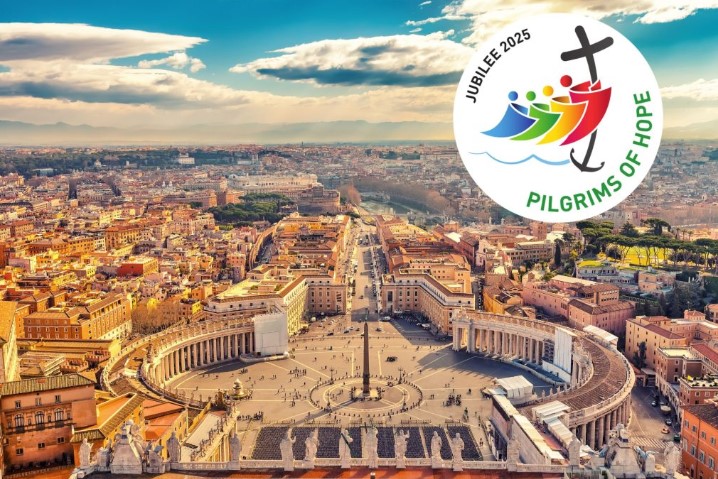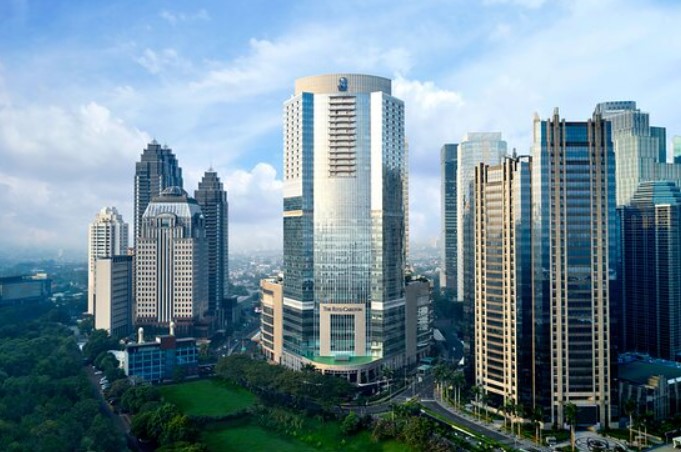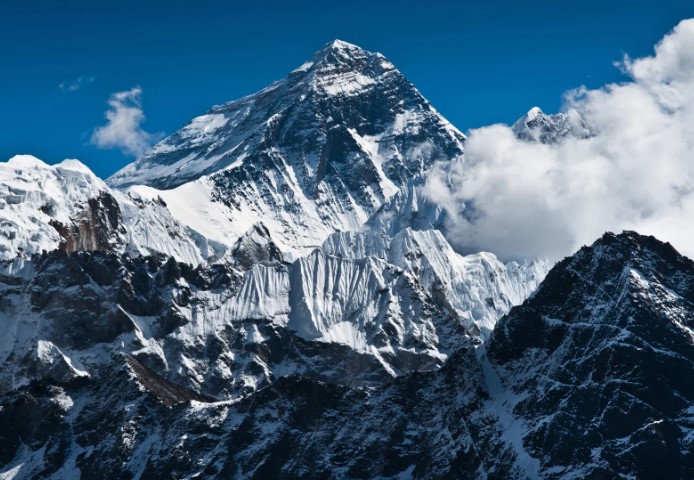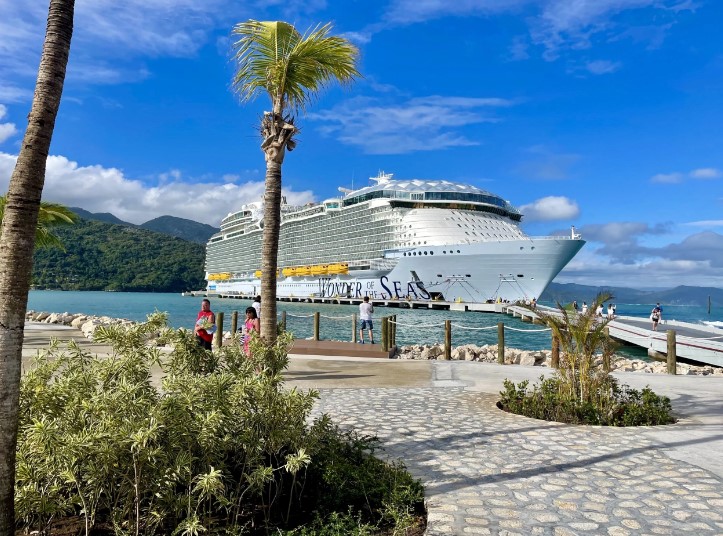The phrase “an embarrassment of riches” could have easily been invented to describe the litany of lovely locales in Europe. Spread across the continent — and sometimes in quite close proximity — are myriad colorful small towns, stately chateaux, Roman ruins, ecclesiastical buildings, medieval castles, shimmering lagoons, and secluded beaches.
While it’s not hard to stumble upon (or seek out) a photogenic destination, defining the most beautiful places in Europe is a bit more difficult because there are just so many. If you’re keen on picking a spot with endless photography potential, read on for some stunning options.
Villa Rufolo, Ravello, Italy
CAHKT/Getty Images
Of all the dreamy Amalfi Coast towns to visit, Ravello continues to spark travel fantasies, music, and art like no other — and Villa Rufolo plays a major role in that. This resplendent maritime residence hypnotizes visitors with its cliff-clinging gardens, unique combination of architectural styles, and panoramas of the Tyrrhenian Sea.
Egremni Beach, Lefkada, Greece
porojnicu/Getty Images
A remote slice of paradise on the Greek island of Lefkada, Egremni Beach boasts some of the bluest water in the world. It’s the contrast of the turquoise sea against bright white sand that makes it so gorgeous. Despite being hard to reach (read: it requires hiking down 350 steep steps), the sheer beauty of this Ionian idyll couldn’t keep it off the tourist map entirely.
Pena Palace, Sintra, Portugal
Chiara Salvadori/Getty Images
Perched atop a rocky peak in the Sintra Mountains, Pena Palace draws heaps of tourists who flock to the 19th-century castle to snap photos of its candy-colored facade and soak in the wide-ranging views. The surrounding 200-hectare park gives off secret garden vibes, with walking paths shaded by exotic trees, lakes, and ponds.
Our Lady of the Rocks, Montenegro
Kshavratskaya/Getty Images
Driving along the road that wraps around the Bay of Kotor provides many scenic delights — none more deserving of pulling over to stare at than Our Lady of the Rocks, an artificial island off the coast of Perast that’s made of rocks and dominated by the 17th-century Roman Catholic church.
Bruges, Belgium
joe daniel price/Getty Images
On rare occasions, a destination is so beautiful that putting down your camera for even a second means missing a photo op. Bruges falls into that category. The storybook capital of West Flanders resembles a movie set with canals, cobbled lanes, and prominent medieval buildings — including the symbolic Belfry of Bruges.
Abbaye Notre-Dame de Sénanque, Gordes, France
Aleh Varanishcha/Getty Images
The Luberon region of Provence is famed for its fragrant lavender fields. Rows of this purple plant perfume the air — and create a striking visual — outside Abbaye Notre-Dame de Sénanque, a splendid example of a Cistercian monastery that hosts guided tours of the church and cloisters.
São Miguel, Azores
Enrico Pescantini/Getty Images
Nicknamed the “Hawaii of Europe,” São Miguel — the volcanic main island in the Azores archipelago, an autonomous region of Portugal that’s smack-dab in the middle of the Atlantic Ocean — has breathtaking beaches, valleys teeming with lush vegetation, crater lakes, dramatic peaks, and surreal steam-emitting fumaroles.
Keukenhof, Lisse, Netherlands
Darrell Gulin/Getty Images
Widely regarded as the most beautiful springtime garden in the world, Keukenhof, located about 30 minutes outside of Amsterdam, comprises 32 hectares of colorful flower bulbs — including tulips, hyacinths, daffodils, orchids, roses, carnations, irises, and lilies — that erupt in a kaleidoscopic and aromatic display between late March and mid-May.
Château de Chambord, Loire Valley, France
GUILLAUME SOUVANT/Getty Images
Château de Chambord is one of the most recognizable and magnificent crown jewels of the Loire Valley. Constructed by King Francois I in 1519, this massive royal refuge has impressed countless nobles, foreign dignitaries, and tourists over the years with its French Renaissance architecture — particularly the elaborate roofline and interior double-spiral staircase — ornamental moat, and 13,000-acre grounds.
Plitvice Lakes National Park, Croatia
Feng Wei Photography/Getty Images
The search for the bluest water in the world takes travelers to many photogenic places, including Croatia’s famous Plitvice Lakes National Park. Situated halfway between Zagreb and Zadar, this natural wonderland wows more than one million visitors each year with its crystalline lakes, waterfalls, caves, and lush forests.
Colosseum, Rome, Italy
Nico De Pasquale Photography/Getty Images
Classical architecture lovers would undoubtedly include the Colosseum on any list of the most beautiful places in Europe. Built under the Flavian emperors, it’s the largest ancient amphitheater ever constructed, seating 50,000 spectators. The fact that modern travelers can still witness something this emblematic and enduring is nothing short of remarkable.
Lapland, Finland
Roberto Moiola/Getty Images
The Arctic Circle runs through Lapland, a real-life winter wonderland with snow-dusted scenery. Beyond the landscape that looks like it was touched by Elsa, it’s what’s in the sky that makes it so wonderful. Travelers journeying to this rugged, remote region of Finland between September and March have the chance to peep the prismatic northern lights.
San Fruttuoso, Italy
Andrea Pistolesi/Getty Images
Wedged between Portofino Regional Natural Park and the sparkling sea, San Fruttuoso is a postcard-perfect hidden gem on the Italian Riviera with a sheltered pebbled beach, a Benedictine monastery, a few cute restaurants serving freshly caught Ligurian fare, and hiking trails that meander into the forested hillside.
Isle of Skye, Scotland
TONNAJA/Getty Images
Steeped in mythical allure, the windswept, 50-mile-long Isle of Skye overflows with mist-shrouded lochs, craggy peaks, heather moorland, pristine beaches, and fairy-tale castles. All of this and more put the largest of the Inner Hebrides in the running for most beautiful place in Scotland — and make it a favorite filming location for epic adventure quests.
Seljalandsfoss, Iceland
FEBRUARY/Getty Images
Among the most spellbinding natural wonders in Iceland, Seljalandsfoss (which you might recognize from Justin Bieber’s music video “I’ll Show You”) plunges nearly 200 feet from the edge of a steep cliff. The best vantage point for gawking at this awe-inspiring waterfall? The small cave behind the curtain of spray.
La Sagrada Familia, Barcelona, Spain
Pol Albarrán/Getty Images
Designed by celebrated Catalan architect Antoni Gaudí, La Sagrada Familia — the largest unfinished Catholic church in the world — doesn’t need to be completed to dazzle. People line up for hours outside this Barcelona landmark just to gain entrance. Of course, you don’t have to go inside to admire the flying buttresses, twisted towers, and larger-than-life carvings of religious figures.
Neuschwanstein Castle, Schwangau, Germany
Keren Su/Getty Images
Neuschwanstein Castle belongs in a Disney movie. Teetering on a forest-covered hilltop, this staggering 19th-century palace shows off towers, turrets, frescoes, and a grand throne room. It’s imposing, but also somehow peaceful — which was the intention of King Ludwig II of Bavaria, who commissioned the palatial project as his personal retreat.
Geirangerfjord, Norway
Ladiras/Getty Images
One of Norway’s most popular and picturesque attractions, UNESCO-protected Geirangerfjord inspires with its deep, blue water ringed by sky-grazing snow-capped peaks, gushing waterfalls, and green vegetation. Needless to say, forgetting your camera would be a big mistake.
Walls of Dubrovnik, Croatia
Dreamer4787/Getty Images
A must-do activity on any trip to the Pearl of the Adriatic, walking along the iconic walls of Dubrovnik gives visitors an unparalleled perspective of its protective forts, bastions, and towers, plus the distinctive red roof tiles (known as kupe kanalice), blue sea, and nearby islands.
Hallstatt, Austria
Sasipa Muennuch/Getty Images
Set on the western shore of Hallstätter See, Hallstatt has 16th-century alpine architecture, quaint cafes, scenic trails, a funicular to an ancient salt mine, and sapphire water that reflects all the aforementioned loveliness. While these elements are undeniably alluring in their own right, it’s the combination that makes this Austrian village so utterly irresistible.
Grand-Place, Brussels, Belgium
bbsferrari/Getty Images
It’s worth navigating the selfie-stick-wielding tourists that crowd in the middle of the Grand-Place to stare up in wide-eyed wonder at the grandeur of its landmarks — notably the Brabantine Gothic-style Town Hall (guided tour of the interior is possible), the neoclassical Maison des Ducs de Brabant, and the opulent Maison du Roi.
Ushguli, Georgia
Emad aljumah/Getty Images
It’s hard to put into words the wonder of seeing Ushguli up close. Hidden in the Caucasus Mountains at an elevation of roughly 7,000 feet, the highest continuously inhabited destination in Europe is a place where time stands still as ancient Svanetian watchtowers, jagged peaks, old stone houses, and grazing livestock await visitors who venture to this community that was virtually cut off from the rest of the world for millennia.
Nyhavn, Copenhagen, Denmark
CHUNYIP WONG/Getty Images
Obviously, 17th-century Nyhavn was built way before social media became a thing. However, Copenhagen’s glorious waterfront district, which runs from Kongens Nytorv to the harbor, does look tailor-made for Instagram, with colorful townhouses and boats bobbing in the canals.
Blue Lagoon, Iceland
DieterMeyrl/Getty Images
A popular Iceland attraction — and perhaps the most stunning spa on the planet — the Blue Lagoon is filled with nine million liters of geothermal turquoise water. Visitors can soak and slather on silica-rich mud while gazing at the volcanic lava fields.
Rakotzbrücke, Kromlau, Germany
MikeMareen/Getty Images
Rakotzbrücke proves that sometimes it really is worth taking the road less traveled. Despite appearing to be the work of some mythical woodland creatures, this arched masonry bridge was constructed by humans in medieval times. (However, rumors still swirl that dark forces had a hand in things.)

:max_bytes(150000):strip_icc()/TAL-header-hallstatt-austria-BEAUTEURO0323-640d96b8cfd141c9af4582fd1f11bb42.jpg)




More Stories
6 Reasons To Visit This Underrated European Destination This Summer
Weaker U.S. dollar making travel to Europe more costly
Business-class flights to Europe are as low as $2,494